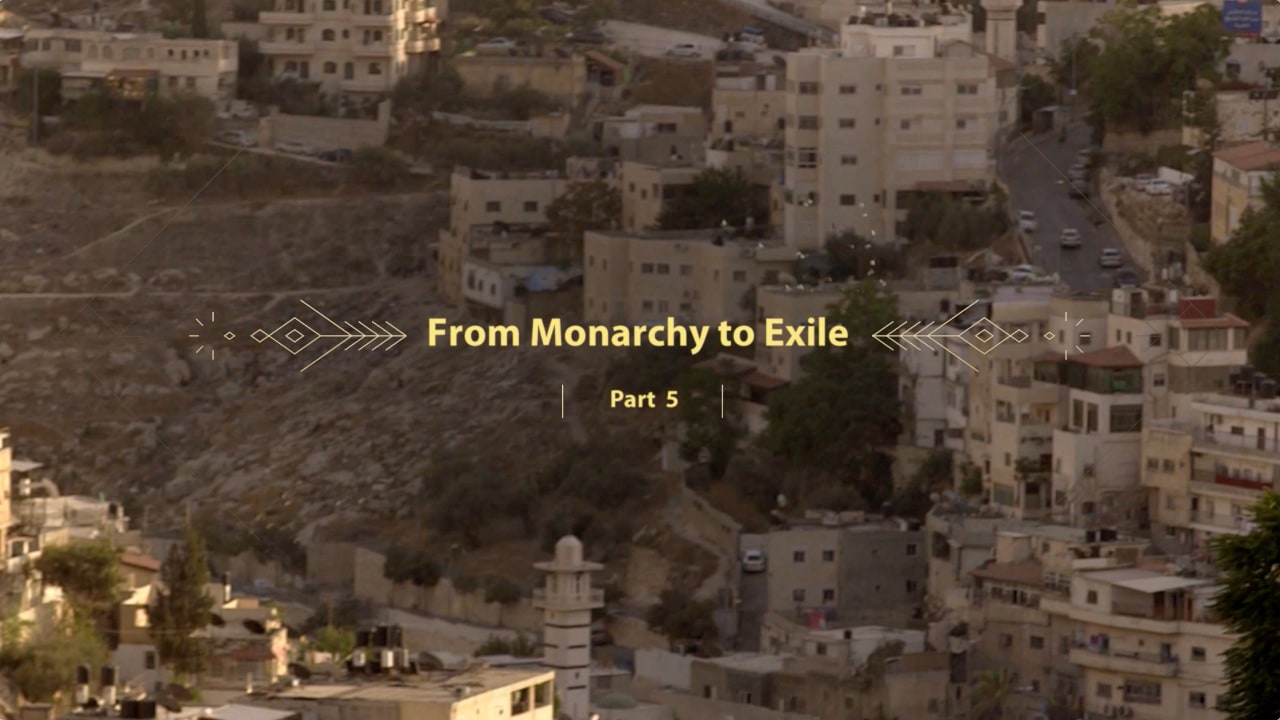The Holy Land / From Monarchy to Exile
An epic series about archaeology
From the 10th century to 586 BCE
In the 10th century BC, the Kingdom of Judah begins its growth around the city of Jerusalem, which spreads to the back of the mountain and the lowlands in the shadow of its older sister in the north: the Kingdom of Israel.
The process of monumental construction of palaces in Jerusalem and in Lachish, the second largest city, testifies to the growth and expansion of the kingdom whose southern border reaches the city of Beer Sheva and donkey caravans carrying copper from the mines in Timna and Pinan that were controlled by the Edom kingdom.
New discoveries about altars destroyed during the reign of King Hezekiah in the 8th century serve as stirring evidence of the beginning of a religious reform, which culminated a few decades later, in the days of King Josiah, "the absolute righteous".
During the 7th century, the Assyrian conquest did not stop the kingdom of Judah, and it became a vassal of the king of Assyria. The Assyrian army destroys all the cities in its path and turns towards Jerusalem. But surprisingly, the city of Jerusalem remains alone and is not occupied. The Assyrians leave her unscathed. The Bible tells how God's angel struck the Assyrian army, and this event is the beginning of the process of the city's sanctification and the beginning of the construction of the myth about the spirit of God protecting it. The historical facts present a different version.
After the destruction of the Kingdom of Israel in 720 BC, refugees arrive to the Kingdom of Judah, which tries to appropriate areas of the obliterated kingdom. The "Assyrian Peace" period begins, in which the vassal kingdom of Judah prospers.
During these years, the book "Deuteronomy" was discovered or written, which brought about social and religious reform and marked the beginning of God's work, as we know it today, and the beginning of socio-moral religious legislation.
Ancient tombs are discovered and in them, the first "Priestly Blessing" in ancient Hebrew writing.
International upheavals lower the Assyrian Empire and raise the Babylonian Empire. The Babylonian army advances towards Judah, and King Zedekiah of Judah makes an alliance with Egypt, "a broken reed support".
In 586 BC, the Babylonians conquer the city of Jerusalem, burn and destroy it. The first temple is burned, and no trace of it remains. The last king of the House of David, the nobles and the intellectual elite are sent into exile, and the poor are left to guard the ruined cities until the return of the people from Babylonian exile.
Director: Hagar Kot
Producer: Sharon Shavit - Biblical Productions
Editor: Sarah Solomon
Cunetographer: Oded Kirma
Editor In Chief: Itay Landesberg
:
Item already added
plan of is already listed in your Cart!
Press Continue to replace the old plan.












